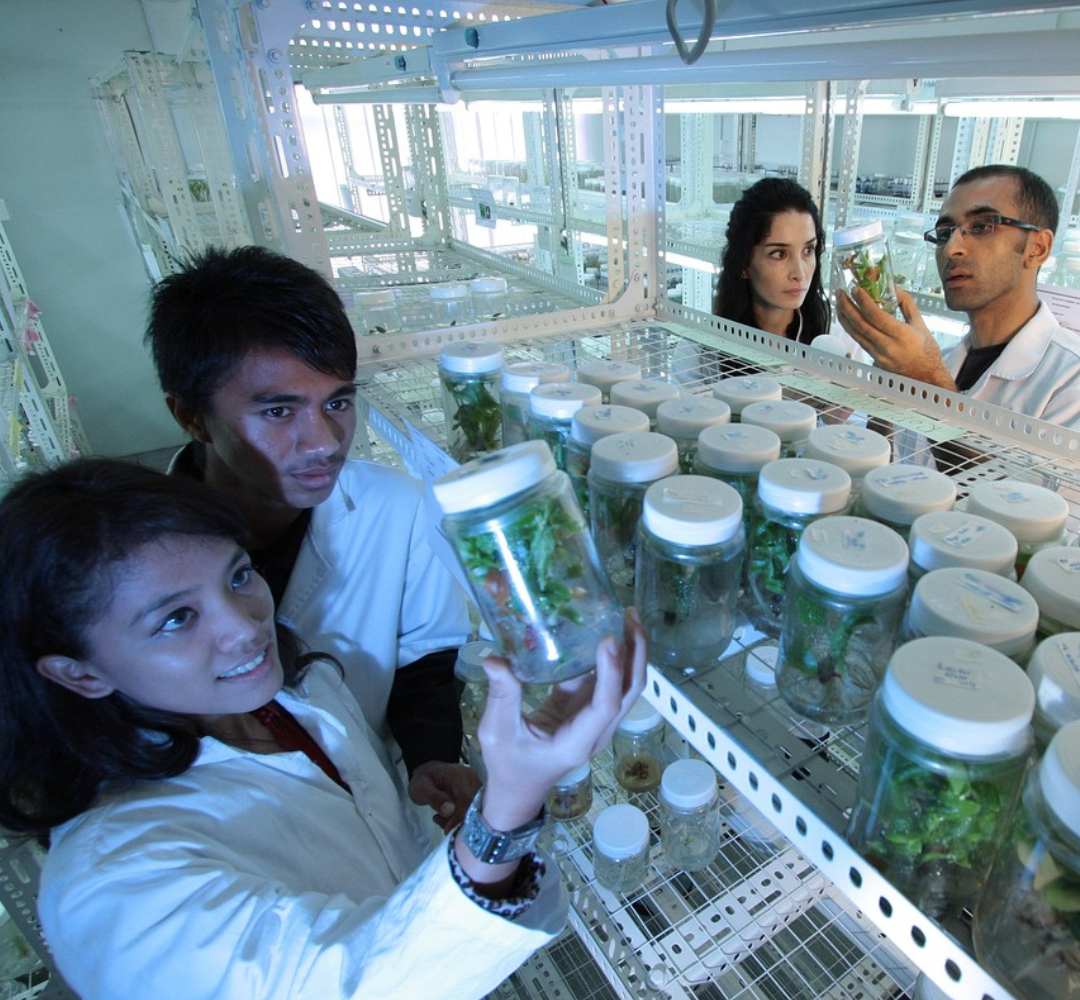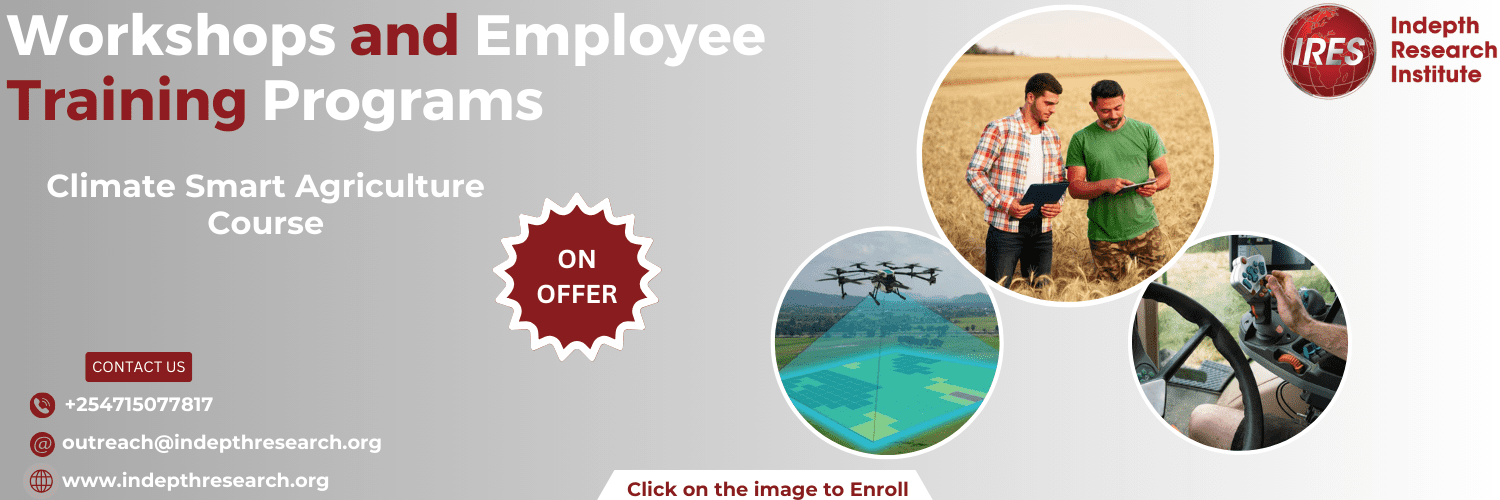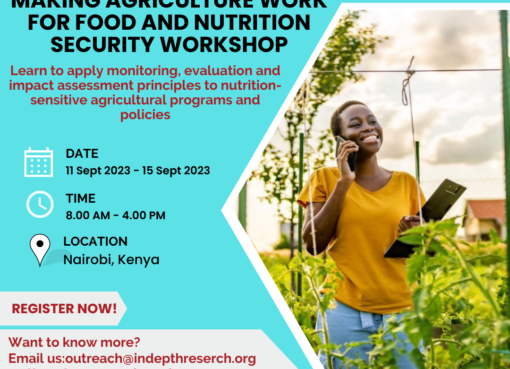Contents
Introduction:
Agriculture research plays a pivotal role in driving innovation, sustainability, and productivity in the farming industry. Furthermore, it is through dedicated research efforts that we can unlock new insights, develop cutting-edge technologies, and address the challenges faced by farmers worldwide. Additionally, we will explore the transformative potential of these advancements in addressing global food security and environmental sustainability challenges.
Related: Empowering Kenyan Communities through Social-Economic Development in Agriculture
In addition to that, we will discuss the importance of continued investment in research and collaboration between scientists, farmers, and policymakers. In this blog post, we will delve into the latest trends and breakthroughs in agricultural research, highlighting how they are shaping the future of farming and paving the way for a more resilient and efficient agricultural sector.
Precision Agriculture:
One of the prominent trends in agricultural research is the adoption of precision agriculture techniques. Firstly, precision agriculture utilizes advanced technologies such as remote sensing, GPS, and data analytics to optimize resource allocation, monitor crop health, and enhance overall productivity.
Secondly, researchers are developing sophisticated tools and algorithms that enable farmers to make data-driven decisions, leading to the precise application of fertilizers, irrigation, and crop protection measures.
Moreover, in addition to improving efficiency and reducing costs, precision agriculture contributes to environmental sustainability by minimizing resource waste and mitigating the impact of farming practices. Consequently, precision agriculture holds great promise for transforming the way we approach farming and ensuring its long-term viability.
Sustainable Farming Practices:
In recent years, there has been a growing emphasis on sustainable farming practices to minimize environmental impact and promote long-term ecological balance. Furthermore, agricultural research is focusing on developing and refining sustainable farming methods such as organic farming, agroforestry, and integrated pest management.
Moreover, scientists are exploring innovative approaches to reduce chemical inputs, conserve water resources, promote biodiversity, and enhance soil health, ensuring the long-term viability of agricultural systems. These sustainable farming practices not only contribute to environmental conservation but also provide economic benefits to farmers through improved soil fertility, reduced reliance on external inputs, and enhanced market demand for sustainably produced goods.
Additionally, the adoption of sustainable farming practices can lead to improved food quality, nutrition, and public health outcomes. Consequently, investing in research and promoting the widespread adoption of sustainable farming practices is crucial for a more resilient and sustainable agricultural sector.
Climate-Resilient Crops:
As climate change poses significant challenges to agricultural productivity, researchers are dedicated to developing climate-resilient crops. Moreover, through genetic modification and breeding programs, scientists are working to create crop varieties that can withstand extreme weather conditions, resist pests and diseases, and maintain high yields under changing climatic scenarios.
Additionally, these efforts aim to secure food production in the face of climate-related uncertainties and ensure food security for a growing global population. Furthermore, the development of climate-resilient crops can also contribute to reducing the environmental impact of agriculture by minimizing the need for chemical inputs and protecting natural resources.
The research and development of climate-resilient crops are of utmost importance to address the challenges posed by climate change and ensure sustainable food production for future generations.
Digital Agriculture and Big Data:
The integration of digital technologies and big data analytics has revolutionized the agricultural landscape. Moreover, researchers are harnessing the power of artificial intelligence, machine learning, and Internet of Things (IoT) devices to collect, analyze, and utilize vast amounts of agricultural data. Furthermore, this data-driven approach enables real-time monitoring, predictive modeling, and optimized decision-making in various aspects of farming, ranging from crop management and livestock monitoring to supply chain logistics and market forecasting.
Additionally, digital agriculture offers opportunities for increased efficiency, reduced resource waste, and improved productivity, ultimately leading to a more sustainable and economically viable agricultural sector. Consequently, the effective utilization of digital technologies and big data in agriculture holds great potential to enhance farm management practices, increase yields, and improve overall profitability.
Biotechnology and Genetic Engineering:
Advancements in biotechnology and genetic engineering have the potential to transform agriculture by improving crop traits and enhancing nutritional value. Furthermore, researchers are exploring gene editing techniques such as CRISPR-Cas9 to develop crops with enhanced tolerance to pests, diseases, and environmental stressors. Moreover, biofortification efforts aim to increase the nutritional content of crops, addressing malnutrition and improving public health outcomes.
Additionally, the application of biotechnology in agriculture offers opportunities for reducing pesticide use, enhancing crop productivity, and improving resource efficiency. Consequently, the continued research and responsible adoption of biotechnology and genetic engineering can contribute to a more sustainable and food-secure future.
Conclusion:
In conclusion, agricultural research is instrumental in driving progress and innovation within the farming industry. To sum up, the latest trends and breakthroughs discussed in this blog post demonstrate the immense potential of research to address the challenges faced by farmers, promote sustainability, and enhance productivity. Ultimately, by embracing precision agriculture, sustainable farming practices, climate-resilient crops, digital technologies, and biotechnology, we can create a more efficient, resilient, and environmentally friendly agricultural sector.
Hence, continued investment in research and collaboration between scientists, farmers, and policymakers is essential to ensure a prosperous and sustainable future for agriculture.
To summarize, the advancements in agricultural research have the power to shape the way we produce food, protect the environment, and contribute to a more sustainable and food-secure world. Therefore, let us support and celebrate the remarkable work being done in advancing agriculture through research.
Read Also: How Covid-19 Reinforces the Significance of the Agriculture Sector
How to Improve Your Agricultural Research and Development with IRES
Are you ready to become a catalyst for positive impact in Agricultural Research and development? Join our comprehensive Agricultural Research and Development Course at Indepth Research Institute (IRES) and unlock your full potential in transforming agricultural initiatives.
Our specialized course offers tailored solutions and equips you with the knowledge and skills needed to make a significant difference. Led by experienced instructors, you’ll engage in practical exercises and explore real-world examples, gaining invaluable insights into social-economic development strategies.
From sustainable farming practices to agricultural entrepreneurship, our course covers essential topics for success in today’s evolving agricultural landscape. Enroll now to access cutting-edge knowledge and tools that will enhance your ability to create meaningful change.
Don’t miss out on the opportunity to be at the forefront of social-economic development in agriculture. Visit our website or contact us today to learn more and start your transformative journey. Together, let’s drive sustainable change and make a lasting impact in communities.
Register now and become an agricultural catalyst for positive change.
We have a firm belief that every organization has a unique purpose only they can fulfil in this world. We work with you in organizing your resources to exploit opportunities so that you can fulfil your purpose and realize full potential. We build the capacity of people, processes and systems for organizational success and growth as well as nurturing a thriving ecosystem.
Ready to enhance your skills and boost your career? Explore our corporate training programs now and start your journey to success.









Comment here